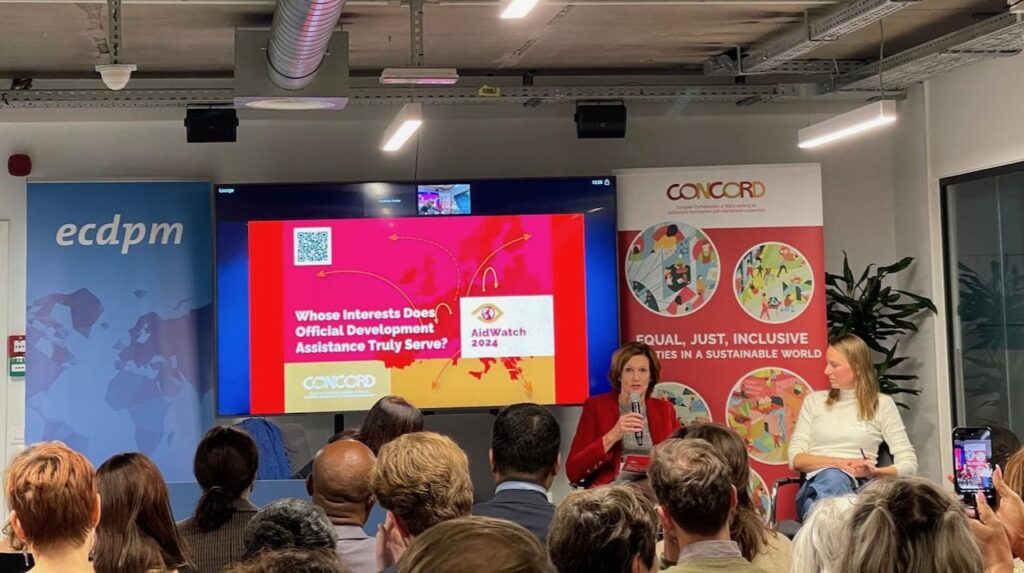CONCORD’s 2024 AidWatch report reveals that Official Development Assistance (ODA) from EU Member States increasingly serves national self-interest, falling short in both quantity and quality.
The 2024 AidWatch report, released on October 22 by CONCORD, exposes the stark contrast between the narrative pushed by EU institutions and governments and the reality behind the ODA figures they report. Upon closer inspection, ODA is being inflated, diverted and manipulated. More than fifty years after the United Nations set the 0.7% of GNI spending target for ODA in 1975, most EU countries still fail to meet this commitment. This has resulted in an ‘aid debt’ to partner countries of over EUR 1.2 trillion!
The report uncovers how EU Member States inflate and divert ODA figures by channelling funds towards national economic and political objectives. Over one in every five euros reported as ODA by the 27 EU Member States fails to meet the criteria defining ODA. Worse still, OECD DAC rules allow this diversion of ODA. The exaggerated ODA figures are mostly due to the reporting of domestic refugee costs as international assistance, and the inflated reporting of debt and development finance transactions.

Country-specific analysis of the quantity and quality of ODA reveals widespread issues across Europe. Germany alone reported €8.6 billion of inflated and diverted ODA for 2023, while countries like France are cutting development budgets, with further reductions likely. Even Sweden, the first country to reach the international ODA target, has abandoned its 1% target and set a three-year plan to decrease aid spending.
Following Russia’s war of aggression in Ukraine, we saw a historic peak in public funding, reported as ODA, being used to cover the costs of hosting refugees in the EU. This spending, referred to by the OECD as ‘in-donor refugee costs’ has been excessively reported by DAC countries – a trend which has elicited severe criticism from the Chair of the OECD DAC. However, reporting in-donor refugee costs as ODA continues to be a significant trend in several EU Member States, even despite the drop in number of arrivals of refugees between 2022 and 2023 in some countries.
In the coming years, the European Commission will cut €2 billion in planned international cooperation spending, further jeopardising international cooperation commitments as a result of the decision taken by EU Member States. Which partner countries and how these cuts fall will tell what the EU’s real cooperation priorities are.
As AidWatch highlights, the misuse of ODA amid pressing global crises is of great concern.
Written by CONCORD Europe team. Find out more here.
Copyright 2025 Ambrela – Platforma rozvojových organizácií. Táto stránka je financovaná zo zdrojov SR cez SlovakAid a EÚ cez Stronger Roots. Za obsah nesie výhradnú zodpovednosť Ambrela a nemusí nevyhnutne odrážať názory donorov.